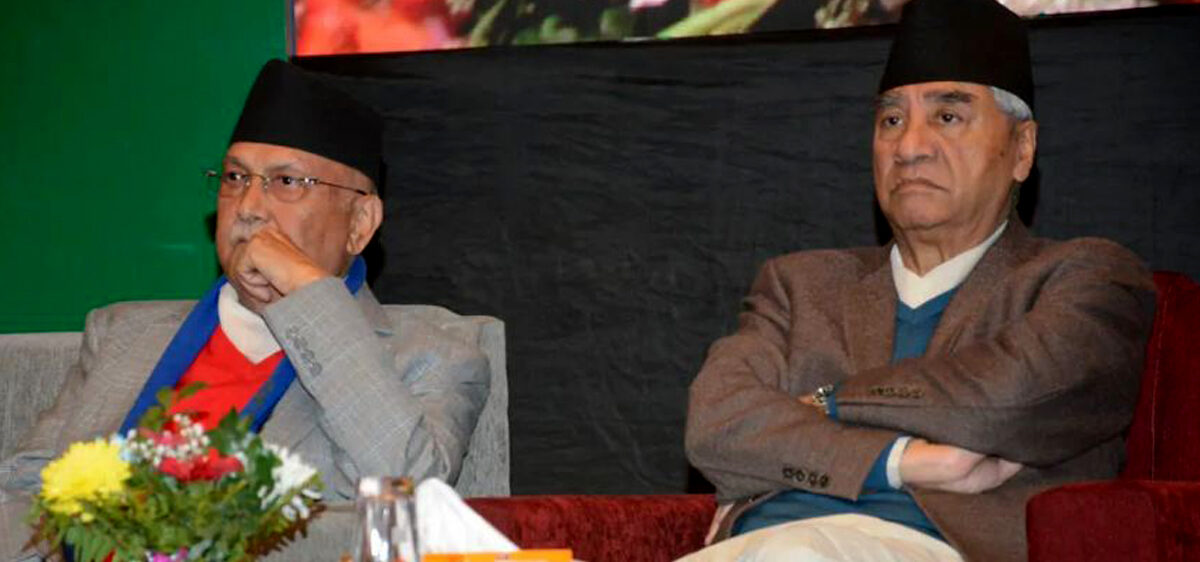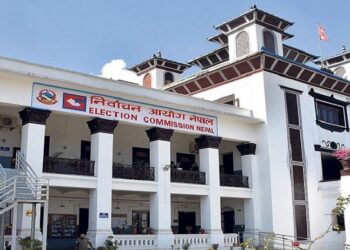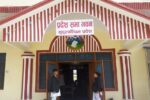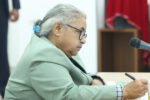KATHMANDU: It has been six months since the current government was formed based on a seven-point agreement between the two largest parties in the federal parliament: the Nepali Congress and the CPN-UML.
The Nepali Congress and UML formed the government in July 2024, promising to prioritize constitutional amendments and lawmaking for political stability by creating a national consensus government.
The Congress-UML coalition also committed to addressing the sluggish economy and fostering a reliable business environment to invigorate economic activities.
Furthermore, they argued that entering the power equation was essential to generating sufficient employment by encouraging both domestic and foreign investment.
Disappointing results
However, despite the formation of a powerful government with a near two-thirds majority, it has failed to accelerate development spending in the past five months.
Like previous years, the government has been unable to increase development spending in the current fiscal year.
According to the Office of the Comptroller and Auditor General, after five and a half months of the current fiscal year, the government has met less than 14 percent of its capital expenditure target.
As of December 30, the government has spent only 13.44 percent of its allocated capital expenditure.
To address concerns about the government’s effectiveness, the Congress-UML coalition has formed a task force aimed at improving the government’s functioning. The task force consists of four members from the Congress and five from the UML.
For the current fiscal year, the federal government allocated Rs 352.354 billion for capital expenditure, but only Rs 47.3734 billion has been spent during the first five and a half months.
The government, led by UML Chairman KP Oli, has spent 34.67 percent of its current expenditure target, or Rs 395.318 billion, during the review period.
In the same period, 42.39 percent of the target, or Rs 155.698 billion, was spent on financial management.
During the review period, the government’s expenditure has exceeded its income by more than Rs 1.5 trillion.
According to the Office of the Comptroller and Auditor General, the government earned a total of Rs 445.882 billion in revenue over the five months, but spent Rs 598.564 billion, leaving a deficit of Rs 152.681 billion.
The government has also received only Rs 6.75 billion of the Rs 52.32 billion in foreign grants it had set as its target for the current fiscal year, with officials now acknowledging that the full target will not be met.
In the five and a half months, the government has collected Rs 431.498 billion in revenue, including non-tax revenue of Rs 38.37 billion and other income of Rs 7.63 billion.
Dissatisfaction within the party
Dissatisfaction is growing within the ruling Nepali Congress, with party leaders alleging that the government, formed in accordance with the seven-point agreement with the UML on the midnight of July 1, has failed to deliver on its promises.
Both office-bearers of the Nepali Congress Central Working Committee and provincial working committees have expressed dissatisfaction with the government’s performance.
Prominent party figures, including Dr. Shekhar Koirala and Gagan Thapa, who was elected General Secretary by his faction, have voiced their discontent with the government’s progress and achievements.
Dr. Koirala, during his visit to Kailali in early December, expressed his disappointment with the government’s activities after meeting with leaders and activists from President Sher Bahadur Deuba’s home province in Sudurpaschim Province.
Koirala addresses dissatisfaction with government performance
Koirala was speaking at the first convention of the Nepali Congress’ sister organization, the Nepal Democracy Fighters’ Association, Sudurpaschim Province, on the Nepali date of Poush 22.
“The government did not function as expected, and there are public complaints. We’ve understood the government’s effectiveness, or lack thereof.”
During his address, he stated, “We formed a government between the two major parties to prevent frequent changes in leadership and maintain stability in the country. However, it has not produced the expected results.”
To address concerns about the government’s effectiveness, the Congress-UML coalition has formed a task force aimed at improving the government’s functioning. The task force consists of four members from the Congress and five from the UML.
The Congress representatives in the task force include Vice President Purna Bahadur Khadka, General Secretary Gagan Thapa, Home Minister Ramesh Lekhak, and Foreign Minister Dr. Arju Rana.
From the UML, Senior Vice Chair Ishwor Pokharel, Vice Chair Bishnu Poudel, General Secretary Shankar Pokharel, and Deputy Secretary General Bishnu Rimal are part of the task force.
Vice Chair Poudel serves as Deputy Prime Minister and Finance Minister in the current government.
Despite being a member of the eight-member task force, Nepali Congress General Secretary Thapa has expressed dissatisfaction with the government’s performance.
The day before Koirala voiced his concerns in Dhangadhi, Thapa remarked that the government has not met the objectives set when it was formed, nor has it lived up to the people’s expectations.
Meanwhile, after the release of Kailash Koirala’s novel “Shastra” in Kathmandu, Thapa told reporters, “The hope that existed when the government was formed has not translated into delivery according to those expectations.”
Nepali Congress leaders voice growing frustration
Rajendra Bajgain, a Nepali Congress Member of Parliament from Gorkha-1, also expressed frustration with the current Oli-led government.
“There is a seven-point agreement between Congress and the UML, but there is no public evidence that the government is focused on those points,” he told Khabarhub. “Aren’t the government leaders violating the very agreement they made?”
Bajgain further criticized the government’s performance, stating, “I’ve always heard that the government is successful, but I have never felt the success of any government so far. The common citizen hasn’t seen that success either.”
“We are currently in a joint government. The big parties, Congress and UML, have formed this government. The Prime Minister is KP Oli, but we proudly say that policy leadership is provided by the Nepali Congress,” said Sitaula, who is also a member of the National Assembly.
Bajgain, who wears glasses, humorously remarked, “As for the 6/7-point agreement, I’m someone who wears powered glasses. But throughout my life, my lenses have always been distorted. I’ve always heard that every government has been successful, but even when I’ve been lying in the hot sun, I couldn’t feel any success, nor did I see the citizen experiencing that success.”
Nepali Congress Lumbini President Amar Singh Pun also expressed dissatisfaction with the current government.
“What should have happened when the two big parties formed a government together is not happening,” he said in an interview with Khabarhub.
“The government did not function as expected, and there are public complaints. We’ve understood the government’s effectiveness, or lack thereof.”
Pun further explained that the government is struggling with good governance, providing effective services to the people, and fully implementing federalism.
“However, the Congress-UML government cannot afford to be confused,” he added.
Sitaula claims Nepali Congress leads policy decisions
While dissatisfaction with Prime Minister KP Sharma Oli’s leadership is growing within the Congress, leader Krishna Prasad Sitaula has argued that the Congress is still leading policy decisions.
Speaking at an event in Kathmandu on National Reconciliation Day, Sitaula stated, “Although KP Oli is the Prime Minister, the Nepali Congress is leading the policy.”
“We are currently in a joint government. The big parties, Congress and UML, have formed this government. The Prime Minister is KP Oli, but we proudly say that policy leadership is provided by the Nepali Congress,” said Sitaula, who is also a member of the National Assembly.
“The Prime Minister may be handling the administration, but the Nepali Congress is providing the policy leadership to move Nepal and its people forward.”









Comment